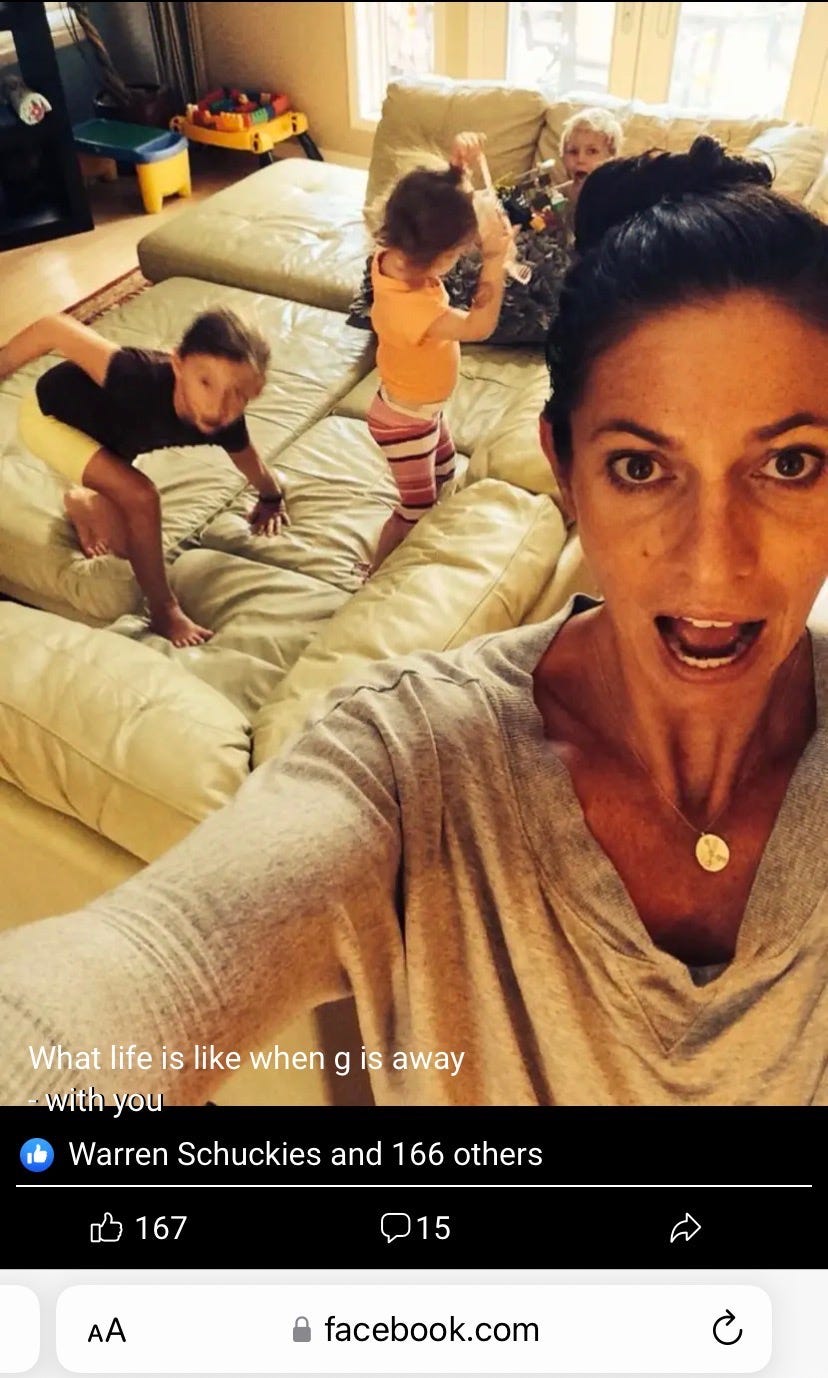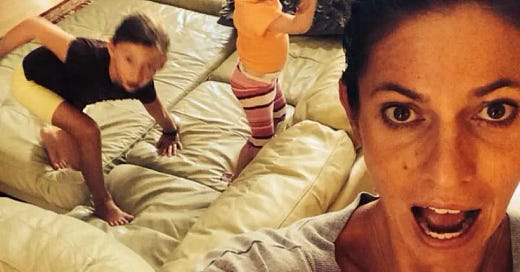
Start with the end in mind.
What sort of life do you wish for the young people around you?
My answer:
I want them to be prepared to live without me.
I want them to have the skills to self-direct their lives.
I’d like them to avoid ruin.
My teaching strategy is grounded in regret and limiting beliefs.
Avoiding regret in myself.
Reducing self-limiting beliefs in others.
Today, I’ll explain how living with toddlers put these strategies to the test.
Living in the fog of fatigue, it is easy to forget my goals and purpose.
The difficulties of my life have provided me with a valuable education.
What does it take to get things done and get along with people?
Two things:
Don’t Retaliate
Persist
Invert these two points and we are likely to end up unhappy and alone. Something I hope we all avoid.
Stress Reveals
I do a lot of group swimming.
Being in the water, in a crowd, with heart rate elevated… we learn about our leadership style.
The non-swimming equivalent is watching a driver in rush hour traffic.
Travel days are also a test.
How do we deal with setbacks, surprises and surprises?
Crowds - Rush Hour - Airports
Long before we have kids, the world gives us feedback on how we cope with:
Fatigue
Stress
Crowds
Noise
Endless opportunities to practice two important skills.
Don’t Retaliate
Persist
By the way, gossip is a form of retaliation, and unattractive. Dialing it down crushes our rate of unforced errors. Talk like everyone is in the room.
When parenting gets tough, or I have a setback, I return to the value of persistence.
Some days, after I have fallen short, all that’s left is to apologize and persist.
We get a fresh start each morning.
The Basics
Endurance sport gave me a skill set for parenting:
A desire to improve
The capacity to persist
Low attachment to fatigue
What I had to develop was my next-level skill set.
De-Escalation & Distraction
Here is an essential truth about parenting…
It is easy to shout down a little kid.
It’s also effective in the short term.
But…
Acting on anger is a dangerous habit to feed.
The habit spreads into all areas of our lives (driving, swimming, personal relationships, dealing with others).
And…
Will it get the result we desire?
Where is this pattern likely to take me? My marriage? My future self?
Anger drives good people away from us.
Our future selves will need, and desire, a relationship with our adult children. Acting on anger builds resentment in the target of our anger. A toddler has no recourse. Teens, and adults, do.
I know adults who remain upset about events that happened 30 to 60 years ago.1 It's a heavy burden inside a family system. One I wouldn't want to pass down to the next generation.
Whether it’s sadness, anger or another challenging emotion. Start there:
Not acting on anger
Not retaliating
Persisting
If you’re a young person then make this a habit before seeking marriage, or considering kids.
It’s a lifelong process.
I fall short, often.
Signs Of Progress
Here’s the thing.
I notice my shortcomings.
As a young adult, I had a misplaced pride in being an a-hole. I took pride in being externally successful despite my flaws.
So if you notice that you have certain “a-hole tendencies” then take it as a sign of progress. At least we’re noticing.
My choice was to start with myself. Once I had myself in order, my kids started arriving and showed me that I had a lot more work to do.
Tips To Get You Started
It’s not just a cranky toddler. These tips work well for business negotiations and personal investing.
When the news cycle, or your home life, has you feeling like you are starting to spin…
Slow Down - very few situations require rapid action. In a family context, if it’s not life threatening then there’s time to…
Pause Before Acting - first response… often not best response.
Make a habit of inserting a small pause before every decision.
How might we build that habit?
I repeat whatever a kid says to me. Gives me time to think, lets the kid know they have been heard.2
Teach Indirectly AFTER The Energy Has Left The Situation
Worth repeating…
Indirectly
After The Energy Is Gone
My favorite tactic is to teach one of my kids, who doesn’t need the lesson.
I teach near the kid who needs to hear the message.
They love listening in on each other.
After we have the chat… “but I already do that, Daddy.” “Yes Sweetie, you’re fabulous at that skill.”
Have The Kid Teach Me - Ask the kid to describe a story illustrating the principle you’re seeking to pass along. The cartoon, Arthur, is a favorite. The show gives our family a language to discuss topics like anger, sadness, exclusion, showing off…
Have Someone Else Teach The Lesson - the emotional stakes are high in parent-child interactions. Both ways, by the way.
Each of us has topics where it’s tough to remain grounded.
High quality tutors, mentors and coaches are often the best way to pass along important skills and lessons.
This approach is for more than kids:
As an elite athlete, my coach recommended I go work with someone else.
The new coach’s role was to tell me the same thing, differently.
It worked.
Learn New Skills In Low-Stakes Environments - one of the best things about sport is athletes’ willingness to break patterns that limit success.
High-performance skills are what I use around the house (humility, patience, fortitude & resolve).
Be kind to yourself when you fall short.
Persist.
Gordon Livingston recommends a statute of limitation on the traumas of the past. Set a date when you’ll move past them. I’ve recommended this tactic to siblings who carried childhood bickering into adulthood. Simple, not easy.
If you have a kid, or spouse, that talks a lot then it is not about what’s being said. It is a deep desire to be heard. One of the best things you can do (for anyone) is let them speak fully. If you are a person, like me, who speaks to convey information then listening will not come naturally to you.



